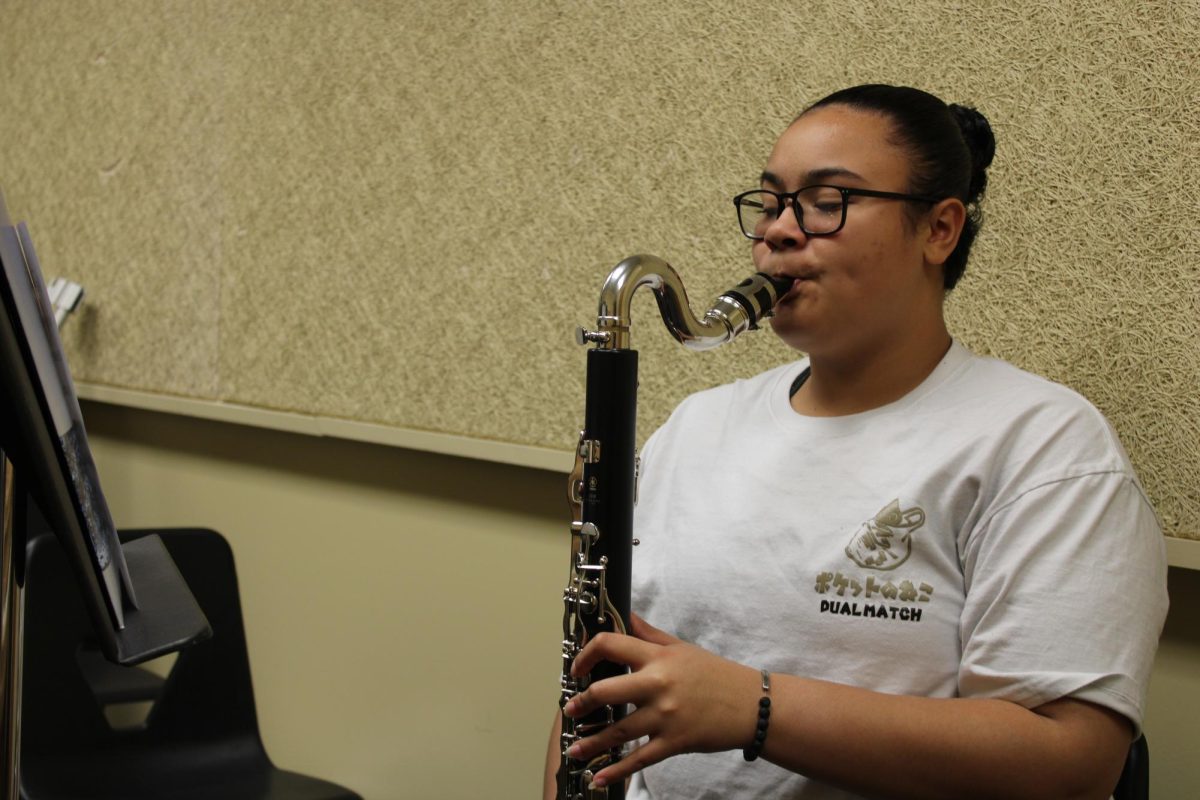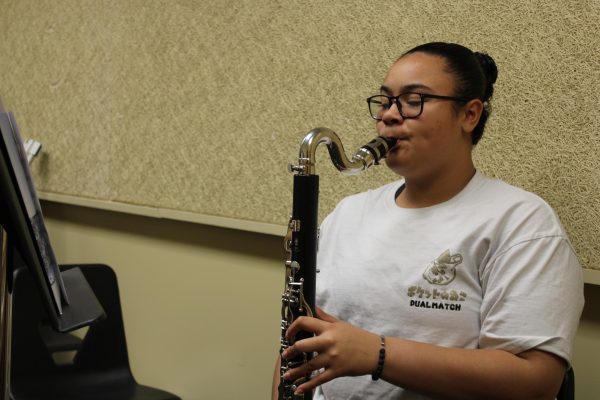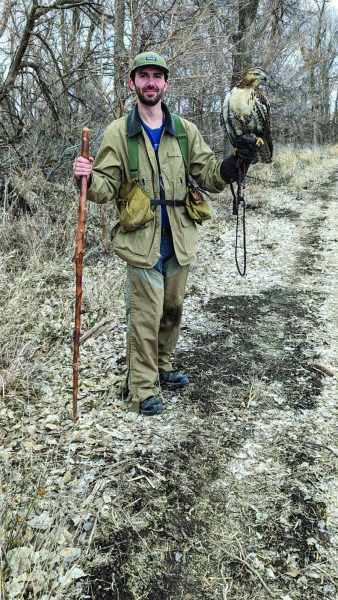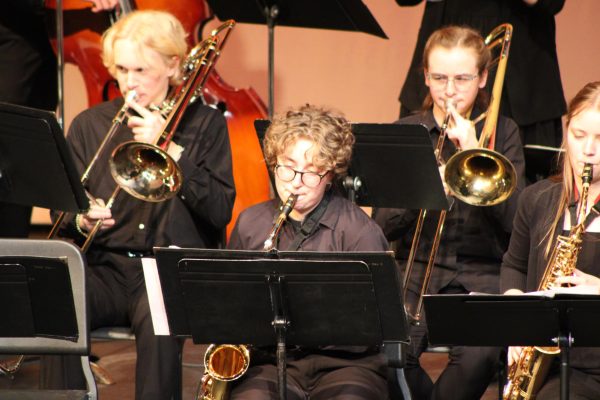Turning grief into healing
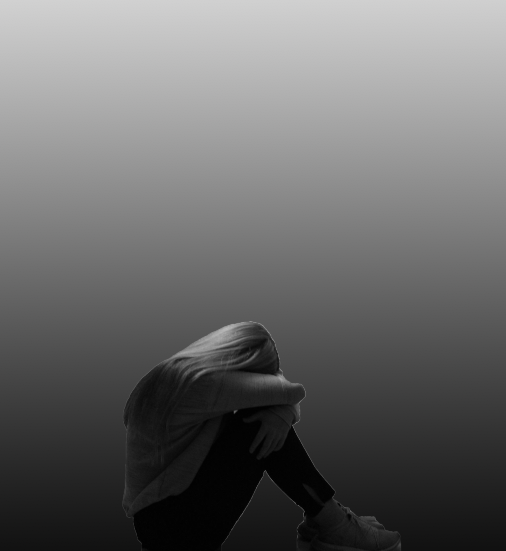
November 13, 2019
It was a Friday morning, and *Luke was just finishing up a camping trip with his sister and parents in Wyoming. He was zoned out on his phone as the trees passed outside the car window, listening to music to pass the time. Out of nowhere, the peaceful silence was broken by a phone abruptly ringing. He quickly looked up to hear his mom, talking to his best friend’s mother, Lisa.
“My mom just kept saying her name, over and over again. ‘*Lisa, Lisa, Lisa.’ I was like, ‘What the hell is going on?’ I thought it was a joke until my mom started crying. In my head, I was so confused and lost. I didn’t really think anything happened, I just thought maybe her car broke down, or [that] she got in an accident,” Luke said.
Luke’s parents pulled the car over and stopped, and sitting on the side of the road, they broke the devastating news to him.
“My mom looked back at me, and said my best friend was gone. I was in shock. I didn’t know what to do. I just kind of sat there and cried,” Luke said.
All across the world, every day, people are dealing with it; grief. Grief is an overwhelming, deep sorrow caused by the loss of someone that was in somebody’s life. Humans are social creatures, and the bonds they create with others are often meaningful. As everyone grows up, they think they are immune to it, sheltered from the pain of death. Until it knocks at their front door, reminding them that everyone is not immortal. Whether it’s loss of someone from gun violence, unforseen death or suicide, it can take a toll on one’s well-being.
“I was pissed and didn’t understand why it happened. It was just a weird feeling. I didn’t think it could happen to us, since we’re so young. But it did,” Luke said.
When a death takes place, people experience a wide-range of emotions, expressing this grief in a number of different ways. Some common reactions to tragedy are a deep sadness, anger, confusion and denial. Many come to ask the question, “Why did this happen to me?” According to an article written by Psychology Today titled, “Understanding and choosing better coping skills,” all of these reactions are completely normal. They are all part of the individual’s grieving process.
Many likely have not heard of “the five stages of grief.” Elisabeth Kübler-Ross was an American Psychiatrist and author of the groundbreaking book “Death and Dying,” where she first discussed the theory of these stages. Ross had said that these stages are chronological. However, people who are grieving do not necessarily go through these stages in the same order, or even experience all of them. The five stages help illustrate and explain how people react to death.
The first stage is denial. When someone is hit with the overwhelming reality of a tragedy, it is often easier to suppress emotions, and not come to terms with what is happening. Secondly comes anger. Once reality sets in, a person is faced with immense emotional discomfort, which then can turn into anger. Third is bargaining — a process that comes into the picture when a person feels so distraught, they will do anything to lessen the impact. The individual may even think of all the trade-offs, or things that could’ve been done differently prior. The fourth stage happens when a person begins to realize the reality of their situation. Depression can set in. This person is eventually faced head-on with the loss in their life.
Finally, the last stage is acceptance. At the end of their journey with grief, the person has come to terms with what they have lost. Again, these stages are not meant to be a framework on what grieving should look like. They are responses to loss that people may experience, but there are no “typical responses” when it comes to loss.
Grief seems as if it could take over one’s whole life. Everyone reacts differently to death and uses personal coping mechanisms to manage grief. During hard times, something many may think about is that so many others are also dealing with a personal tragedy, and they are not alone. It may take months, or even years to come to terms with a loss. There is no “certain timeline,” and there is no reason to feel as if one is behind in the grieving process.
“I found the most comfort in being with my friends,” Luke said. “Whenever we were hanging out with my best friend before he passed, it was always with them. Anytime I’m with them, it kind of just makes everything go away.”
Reaching out to social groups for support is a great first step in opening up one’s mind to a world of possibilities. “To get a fresh perspective, reach out and talk to someone you trust. Ask them to be encouraging and supportive. Ask them to give you hope for a better future,” Psychology Today said. By hearing from a new perspective, the mourner is able to get out of their own head and into a new space. Another method of coping could be seeking out inspiration through other people’s stories about how they have successfully dealt with tragedy.
For example, a person dealing with a tragedy hears about a teenage boy that lost his life in a car accident a few years ago. They found the story of how his best friend dealt with the loss. Initially, he was absolutely heartbroken, devastated and couldn’t for months on end, come to terms with his loss. A year later, he speaks to the public about how he found closure and peace by instead keeping his best friend’s memories alive, and cherishing the time he had gotten to spend with him on earth. In this case, he was able to maintain a connection to the deceased, while still moving on with life. By hearing about other’s stories, it is possible to see that there is a light at the end of the tunnel.
Throughout communities, there are also a number of support organizations or counseling centers that may be helpful. Lincoln Southeast High School’s social worker, Gretchen Baker, said that Lincoln Public Schools goes to great lengths to offer assistance to those going through a hard time. LPS has a crisis team, which consists of social workers, counselors, nurses and psychologists who volunteer to be on this team. If there is ever a student or staff member death, the principal will then call the team and consult them.
“ The [the crisis team is] here for a day or two to help kids who are struggling. And then they kind of pass that on to the social workers and counselors in the building and we continue to follow up,” Baker said.
LSE provides these resources to all students who are affected by a loss. Beyond just the crisis team, a program called “Mourning Hope” is also offered to for students seeking counseling and guidance.
“If counselors and social workers are hearing about student, family or staff death, then we will contact those students and their parents and invite them. We don’t force them,” Baker said. “We meet eight times during the school week, and rotate periods.”
Mourning Hope is also available as a resource outside of school, and this therapeutic program helps teach children and teens to develop healthy coping skills for dealing with the death of a loved one.
For many, therapy isn’t their main source of coping. Another way to help yourself is by taking care of yourself physically. According to Mayo Clinic, [exercise] “promotes several changes in the brain, including neural growth, reduced inflammation and new activity patterns that promote feelings of calm and well-being.”
Vicki Costa, a clinical social worker with Safe Harbor Counseling in Bel Air, Maryland, was interviewed by DailyBurn, and spoke about how, “Exercise can allow grievers to have a sense of control during a time when they are submerged in a stew of symptoms.”
Even though one might not have control of their situation, they do have control over their own body, both physically and emotionally. Physical activity also releases endorphins, which interact with receptors in your brain that reduce your perception of pain. Exercising overall, also serves as a distraction, and can help prevent depression, by interrupting the negative thoughts.
Throughout their lives, many people will watch their loved ones, friends or colleagues go through the grief of a tragedy. However, many don’t know how to truly reach out and help. Afraid of intruding, or not saying the right thing causes many to stray away and decide not to offer support. The best way to offer support is to simply listen, ask questions and share memories of their loved one.
In an article titled, “Helping someone who’s grieving,” from the nonprofit mental health and wellness website, Helpguide Today, it is stated that once you have reached out, “when it seems appropriate, ask sensitive questions — without being nosy — that invite the grieving person to openly express their feelings. By simply asking, ‘Do you feel like talking?’, you’re letting your loved one know that you’re available to listen.”
According to the article, it is also better to ask the bereaved “How are you doing?” rather than “How are you?” The obvious answer to the second one is ‘Not good.’ The more open-ended question leaves room for them to openly talk about how they are actually handling the situation.
It is also good to listen, rather than advise. “We have such problem-solving attitudes in our society, but it’s unlikely that you can fix this situation. Without any magical thing to say to make it all better, just give them the space to express themselves and feel heard,” author Amy Hoggart said in Time Magazine’s “21 ways to help someone you love through grief.”
Unless you are asked for your advice, don’t be too quick to offer it. It’s your understanding that is more needed. There is also not always the need to put a positive spin on the situation. Instead, it is oftentimes better to acknowledge just how bad it really is. This article encourages the reader to avoid vocabulary such as “It could be worse,” or language that avoids acknowledging the death.
Both mourning and grieving are vital for healing to occur — to first collect one’s sense of self, to let go and move forward with life. No matter how long it takes — whether it’s weeks, months, years — it is possible to turn grief into healing.
“My best friend always lived life to the fullest. He did not care what others thought. He didn’t care what we told him to do, he would just do it to make us laugh. It was kind of a moment after his passing, realizing that we all needed to just live life to the fullest and go at it 110 percent,” Luke said.



